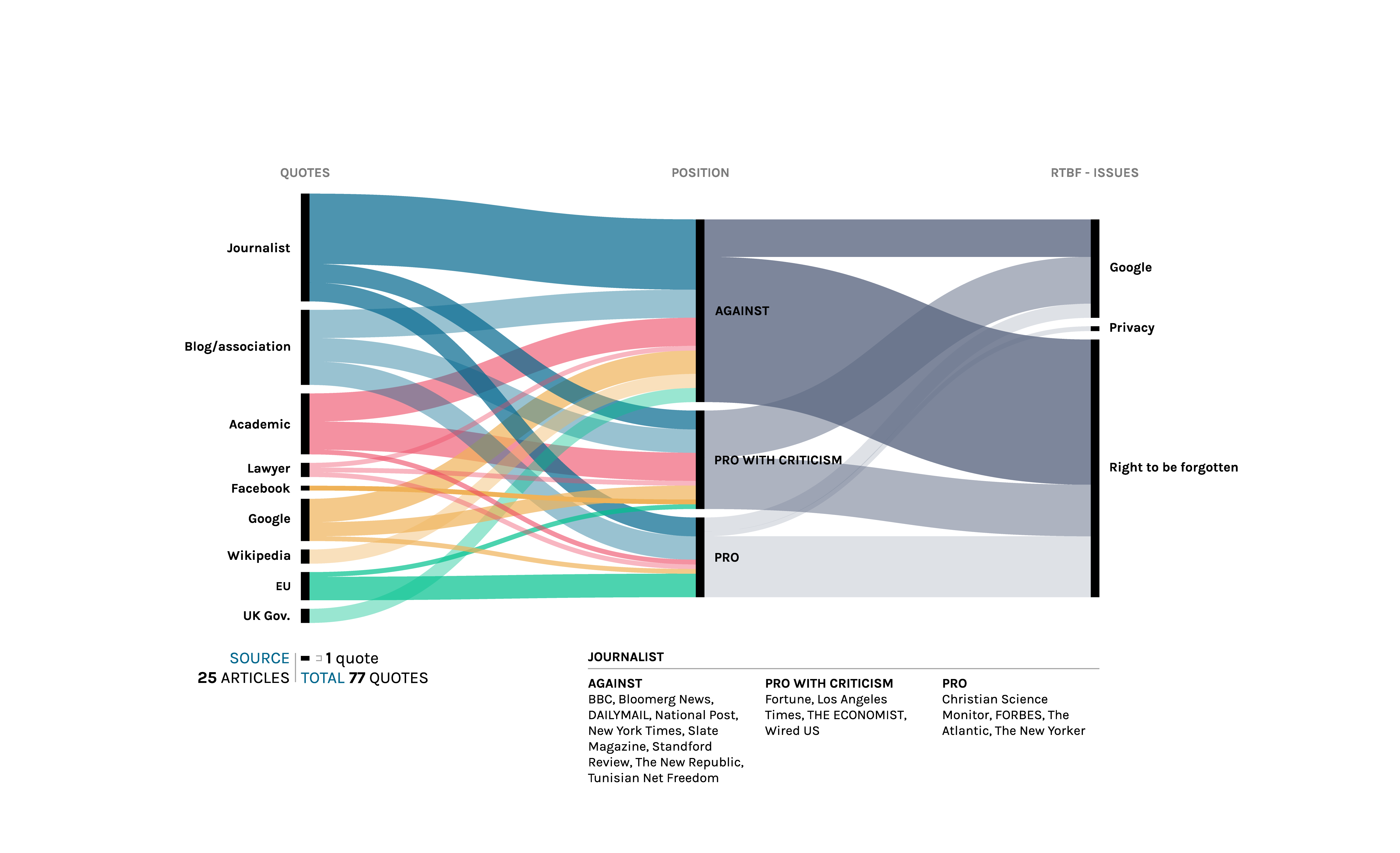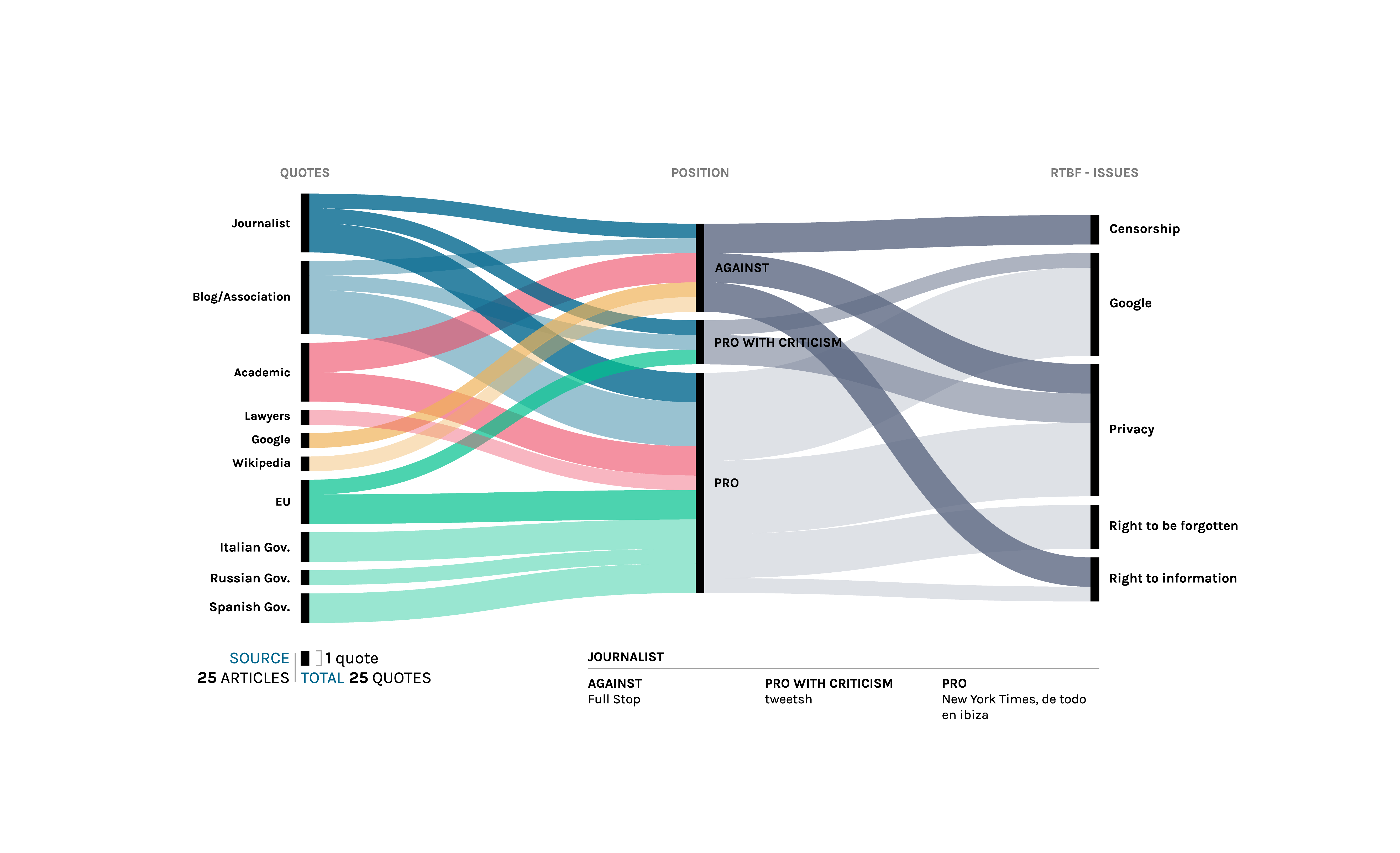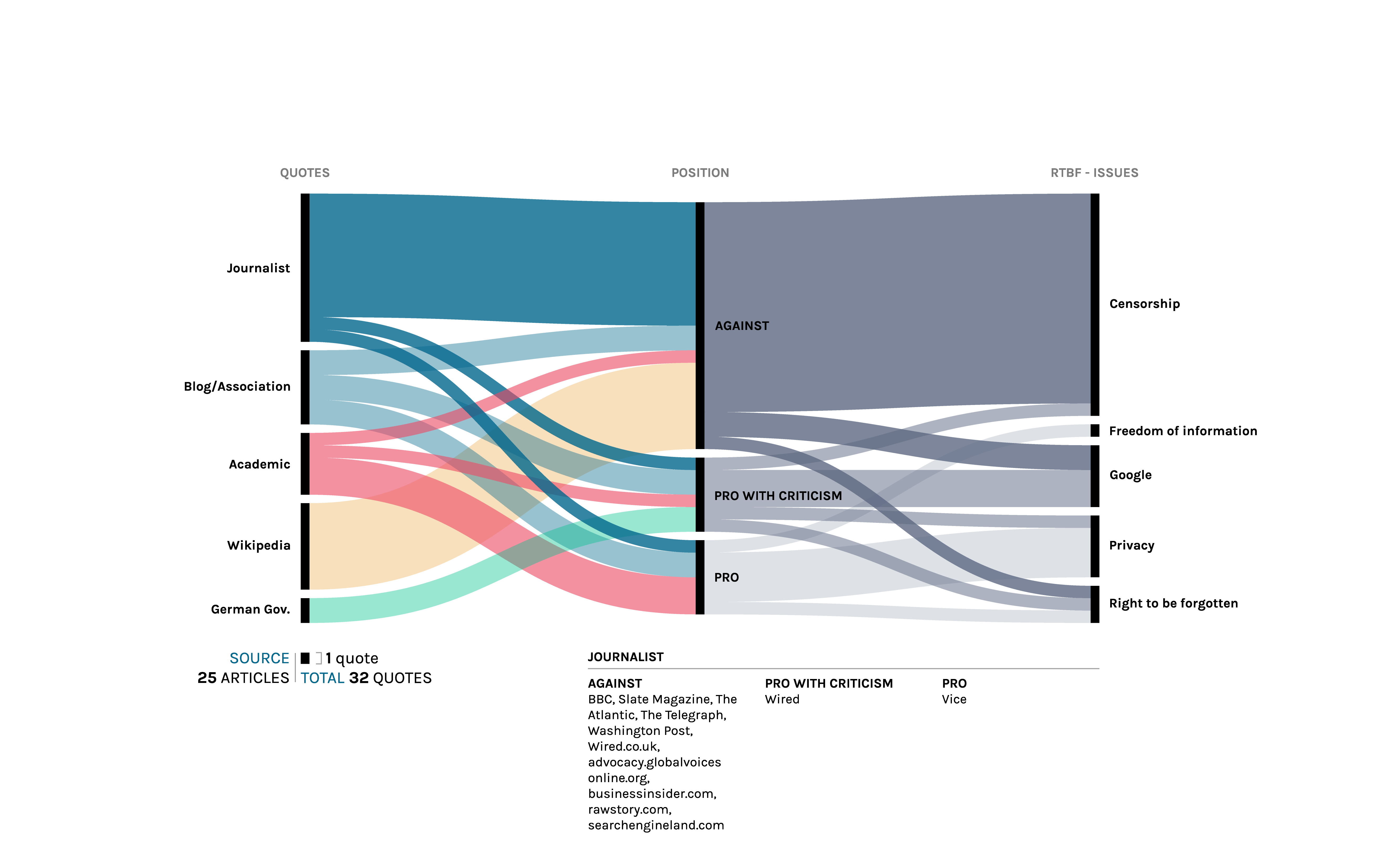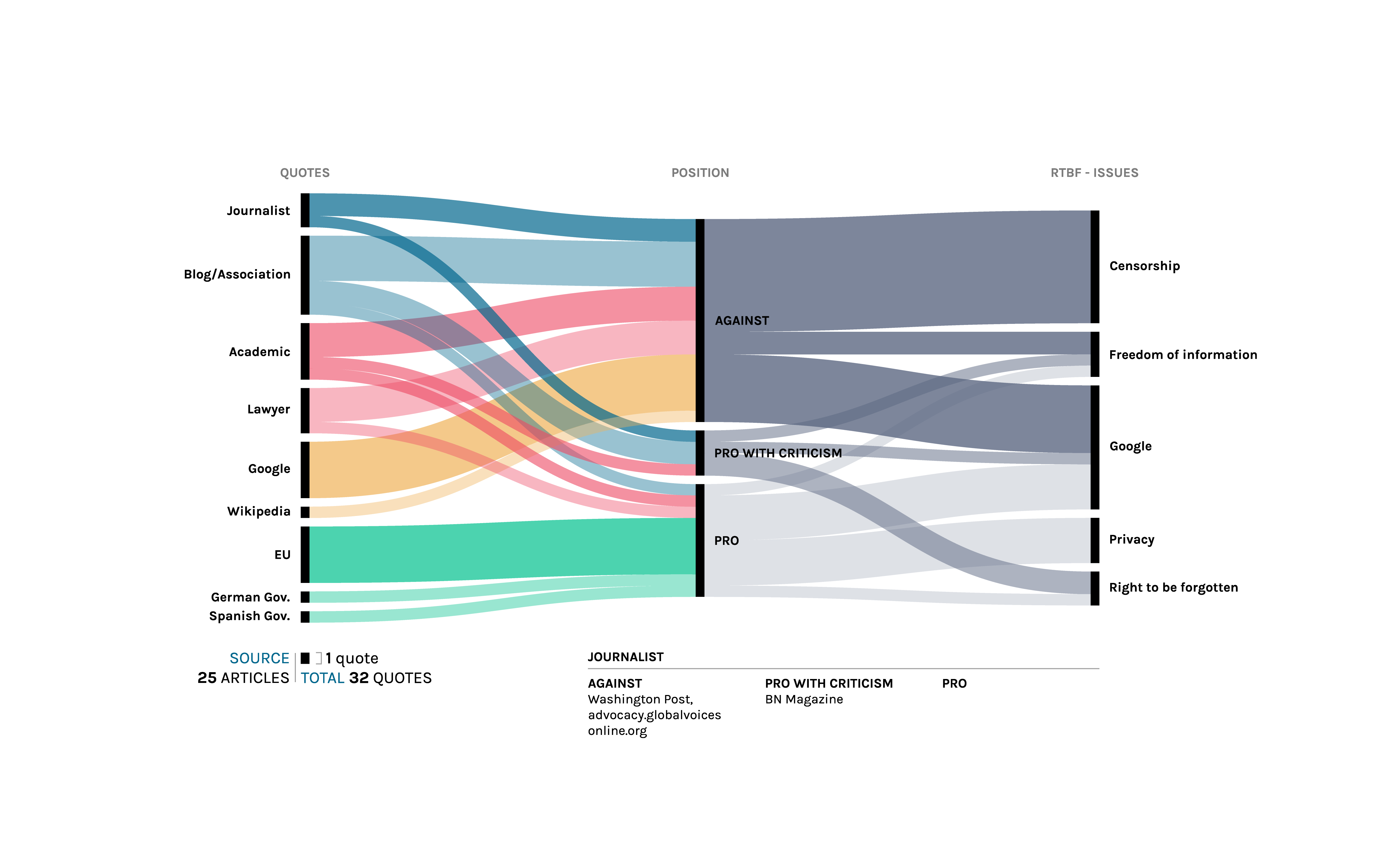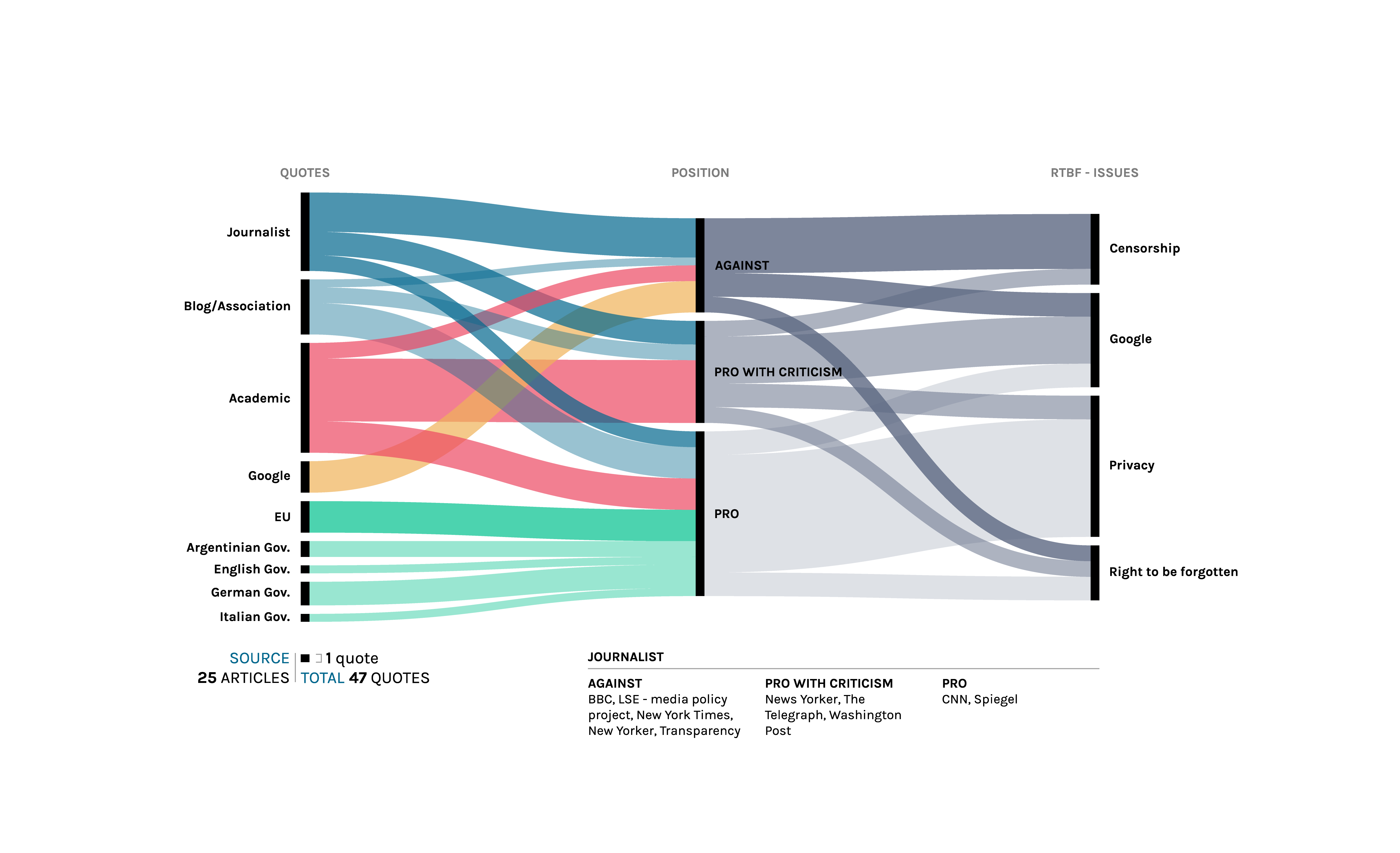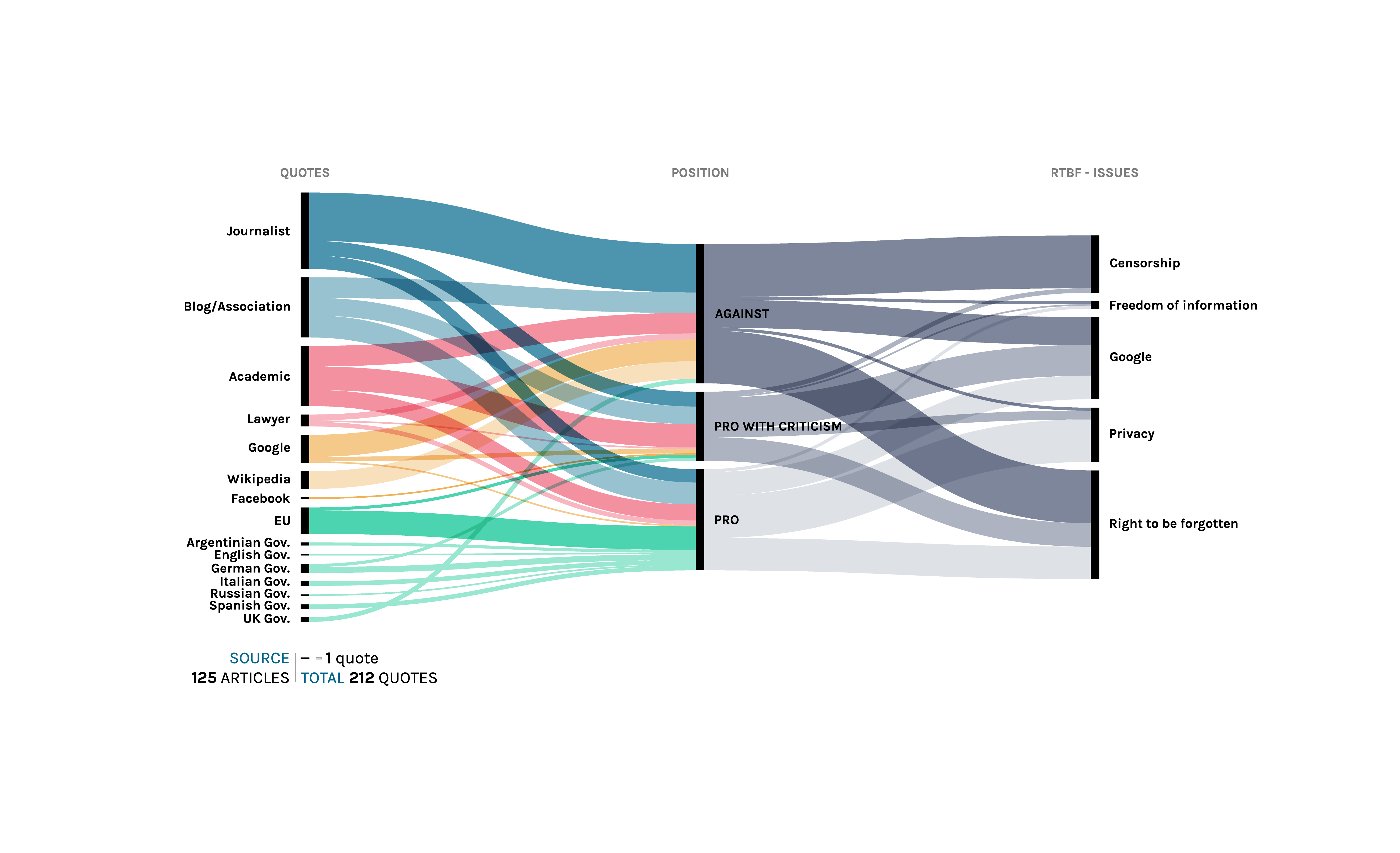Introduction
Once selected the five queries and the articles containing meaningful quotes for each of them, we mapped the results in order to point out the speakers, their positions and the main issues.
The host net concerning the selected articles shows the following results: four out of five queries are somehow connected, except “Right to oblivion” -forgotten, which is clearly isolated.
There are only a few hosts that act as bridge between the other four queries, but none of them shared by all of the clusters.
Only one host (theguardian.com) acts as bridge between “Right to be forgotten” “Freedom of information”, “Right to be forgotten” Censorship and “Right to be forgotten” Privacy.
“Right to be forgotten” “Freedom of information” is almost isolated from “Right to be forgotten” Censorship and “Right to be forgotten” Privacy, which are strictly connected to each other, as well as to “Right to be forgotten”.
